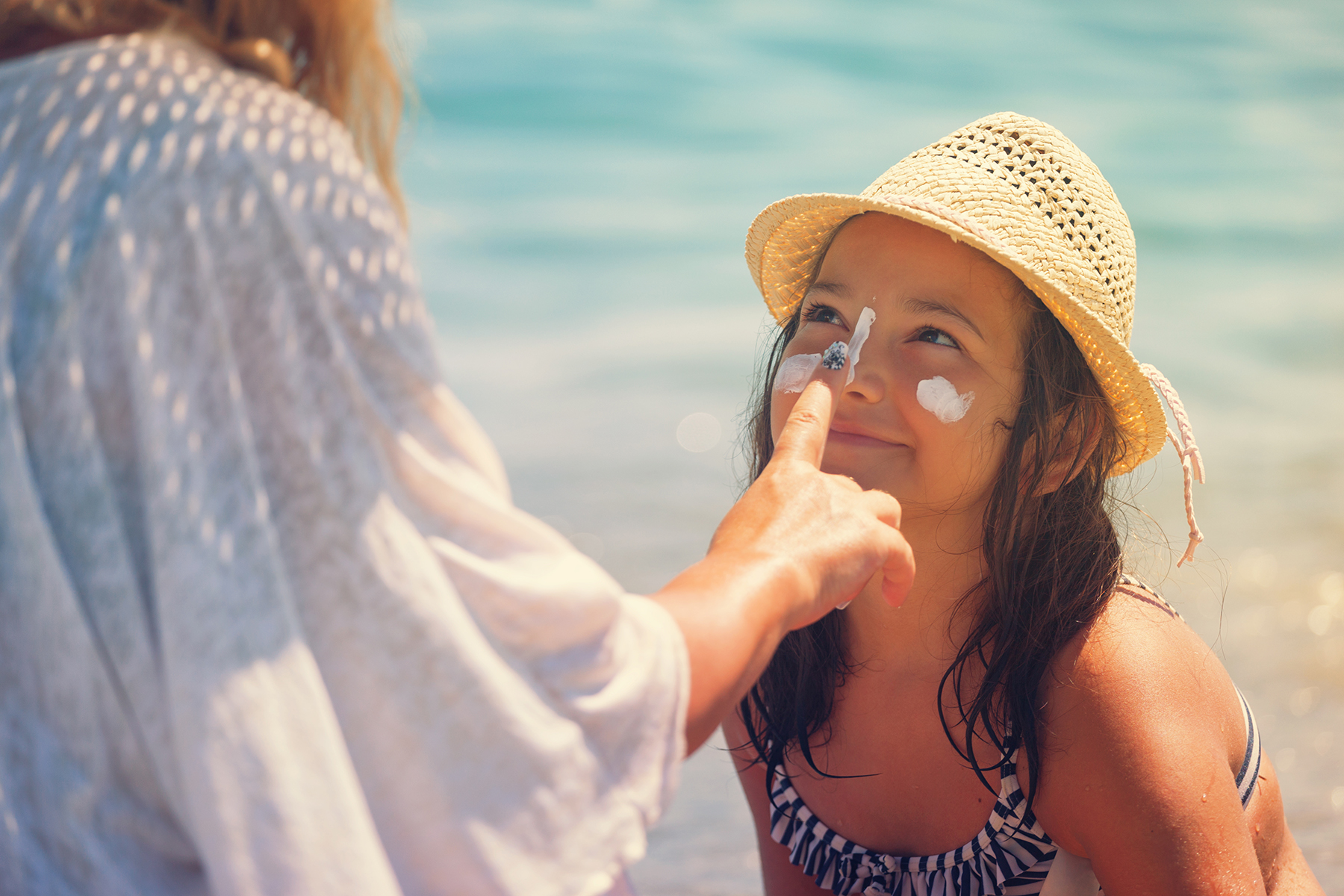Which Sunscreen Is Best for You?

At this time of year, with beach and BBQ season upon us, the sunscreen aisle can be overwhelming. What SPF do you need? Should you get waterproof sunblock? Oil free? With or without zinc? Is the sunscreen in your daily moisturizer enough? Don’t let the amount of options dissuade you from finding the best product to protect your skin from sunburns, skin cancer and wrinkles every day.
What SPF do I need?
While it may help prevent sunburns, a sunscreen with an SPF lower than 15 provides no protection from skin cancer or wrinkles. SPF 15 blocks about 93% of harmful UVB rays; SPF 30 filters out about 97%; SPF 50 about 98% and SPF 100 about 99%.
Two minutes of sun exposure without sunscreen is the same as one hour in the sun while wearing SPF 30.
“No matter what SPF you wear, you need to reapply sunscreen every one and a half to two hours for it to be effective,” says Dr. Jonette Keri, a dermatologist with the University of Miami Health System.
Do I want UVB or UVA ray protection?
UVB rays primarily cause skin cancer. UVA rays can also cause cancer, as well as premature skin aging and wrinkles. Only “broad-spectrum” sunscreens protect you from both UVA and UVB rays.
Is my face lotion with SPF enough?
To be effective, sunscreen needs to be reapplied every one and a half to two hours, liberally and evenly, to all areas of the body that get sun exposure. That’s why your daily facial moisturizer that includes some level of SPF isn’t enough protection to last all day. You might not even be applying enough of this lotion to protect your entire face and neck (ears and scalp) every day. Even while you’re driving or sitting near a window during the day, you can be exposed to the sun’s harmful ultraviolet rays.
“Don’t forget your lips,” Dr. Keri reminds her patients. “Apply a lip balm with SPF 30 every day to guard against skin cancer and wrinkles.”
Which sunscreens are good for sensitive or allergic skin?
If you’re having an adverse reaction minutes or even days after wearing sunscreen, you may have a sensitivity or an allergy to one of its ingredients. Changing the brand you use might not be the solution, as many sunscreens have the same active ingredients.
Try a natural or mineral sunscreen with zinc oxide and titanium dioxide or sunscreens labeled as hypoallergenic, dermatologist tested, safe for sensitive skin, non-irritating or non-comedogenic. Test how your skin responds by applying a small amount to the inside of your elbow every day for three days.
If you have acne-prone skin, go for an oil-free formula, ideally one labeled as light weight.
Is sunscreen safe for my baby?
The Food and Drug Administration advises that babies younger than 6 months do not wear sunscreen, but rather stay out of the sun altogether or wear with clothing with UPF (Ultraviolet Protection Factor) built in. Children older than 6 months can safely wear liberal amounts of sunscreen. Speak to your pediatrician if you have concerns about your child’s sun exposure or any adverse reaction to sunscreen.
What sunscreen is best for an active child?
If your child is going to get sweaty or spend time in the water this summer, a water-resistant (or “sport” formula) sunscreen can provide sun protection for 40 to 80 minutes. Don’t forget to reapply sunscreen after towel drying.
Most sunscreens are effective for up to three years, BUT …
Sunscreens become less effective with time and exposure to heat (e.g., when stored in a hot car). Make sure to shake up last year’s bottle to remix the ingredients before you head out to the beach.
What do dermatologists want me to know?
“Don’t assume that being out of direct sunlight is enough to protect you,” says Dr. Keri. “The sun’s UV radiation can reflect off water, concrete and glass and cause skin damage while you’re resting in the shade. In addition to sunscreen, you can wear UPF clothing with UPF.”
Dana Kantrowitz is a contributing writer for the UMiami Health News Blog.
Tags: dermatology, Dr. Jonette Keri, skin cancer, SPF, sun block, sunscreen, UV ray
